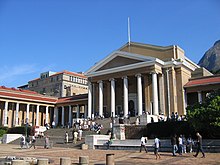Related Research Articles
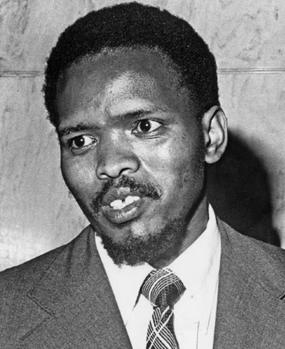
Bantu Stephen Biko was a South African anti-apartheid activist. Ideologically an African nationalist and African socialist, he was at the forefront of a grassroots anti-apartheid campaign known as the Black Consciousness Movement during the late 1960s and 1970s. His ideas were articulated in a series of articles published under the pseudonym Frank Talk.
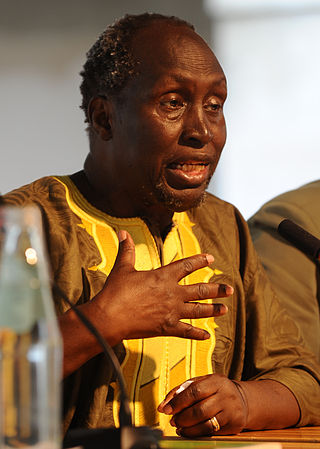
Ngũgĩ wa Thiong'o is a Kenyan author and academic who writes primarily in Gikuyu and who formerly wrote in English. He has been described as having been "considered East Africa’s leading novelist". His work includes novels, plays, short stories, and essays, ranging from literary and social criticism to children's literature. He is the founder and editor of the Gikuyu-language journal Mũtĩiri. His short story The Upright Revolution: Or Why Humans Walk Upright, is translated into 100 languages from around the world.

Chinua Achebe was a Nigerian novelist, poet, and critic who is regarded as a central figure of modern African literature. His first novel and magnum opus, Things Fall Apart (1958), occupies a pivotal place in African literature and remains the most widely studied, translated, and read African novel. Along with Things Fall Apart, his No Longer at Ease (1960) and Arrow of God (1964) complete the so-called "African Trilogy"; later novels include A Man of the People (1966) and Anthills of the Savannah (1987). In the West, Achebe is often referred to as the "father of African literature", although he vigorously rejected the characterization.
The Black People's Convention (BPC) was a national coordinating body for the Black Consciousness movement of South Africa. Envisaged as a broad-based counterpart to the South African Students' Organisation, the BPC was active in organising resistance to apartheid from its establishment in 1972 until it was banned in late 1977.
In June 1962 a conference of African literature in the English language, the first African Writers Conference, was held at Makerere University College in Kampala, Uganda. Officially called a "Conference of African Writers of English Expression", it was sponsored by the Congress for Cultural Freedom and the Mbari Club in association with the Department of Extra-Mural Studies of Makerere, whose director was Gerald Moore.
The African Writers Series (AWS) is a collection of books written by African novelists, poets and politicians. Published by Heinemann, 359 books appeared in the series between 1962 and 2003.
African literature is literature from Africa, either oral ("orature") or written in African and Afro-Asiatic languages. Examples of pre-colonial African literature can be traced back to at least the fourth century AD. The best-known is the Kebra Negast, or "Book of Kings."

Lewis Nkosi was a South African writer, who spent 30 years in exile as a consequence of restrictions placed on him and his writing by the Suppression of Communism Act and the Publications and Entertainment Act passed in the 1950s and 1960s. A multifaceted personality, he attempted multiple genre for his writing, including literary criticism, poetry, drama, novels, short stories, essays, as well as journalism.
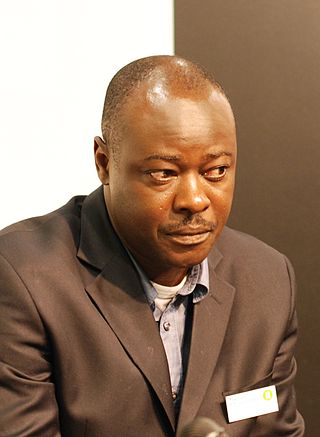
Helon Habila Ngalabak is a Nigerian novelist and poet, whose writing has won many prizes, including the Caine Prize in 2001. He worked as a lecturer and journalist in Nigeria before moving in 2002 to England, where he was a Chevening Scholar at the University of East Anglia, and now teaches creative writing at George Mason University, Fairfax, Virginia.
Simon E. Gikandi is a Kenyan Literature Professor and Postcolonial scholar. He is the Robert Schirmer Professor of English at Princeton University. He is perhaps best known for his co-editorship of The Cambridge History of African and Caribbean Literature. He has also done important work on the modern African novel, and two distinguished African novelists: Chinua Achebe and Ngũgĩ wa Thiong'o. In 2019 he became the president of the Modern Language Association.

Elleke Boehmer, FRSL, FRHistS is Professor of World Literature in English at the University of Oxford, and a Professorial Governing Body Fellow at Wolfson College. She is an acclaimed novelist and a founding figure in the field of Postcolonial Studies, internationally recognised for her research in colonial and postcolonial literature and theory. Her main areas of interest include the literature of empire and resistance to empire; sub-Saharan African and South Asian literatures; modernism; migration and diaspora; feminism, masculinity, and identity; nationalism; terrorism; J. M. Coetzee, Katherine Mansfield, and Nelson Mandela; and life writing.

Okechukwu "Okey" Ndibe is a novelist, political columnist, and essayist of Igbo ethnicity. Ndibe was born in Yola, Nigeria. He is the author of Arrows of Rain and Foreign Gods, Inc., two critically acclaimed novels published in 2000 and 2014 respectively.

Established in 1998, The Steve Biko Foundation (SBF) is a community development organisation in South Africa. The organisation is inspired by the late anti-apartheid activist Steve Biko (1946–1977).

Micere Githae Mugo is a playwright, author, activist, instructor and poet from Kenya. She is a literary critic and professor of literature in the Department of African American Studies at Syracuse University. She was forced into exile in 1982 from Kenya during the Daniel Arap Moi dictatorship for activism and moved to teach in Zimbabwe, and later the United States. Mwalimu Mugo teaches Orature, Literature, and Creative Writing. Her publications include six books, a play co-authored with Ngũgĩ wa Thiong'o and three monographs. She has also edited journals and the Zimbabwean school curriculum. The East African Standard listed her among the 100 most influential people in Kenya in 2002.
Obi Wali was a minority rights activist, politician, distinguished senator, literary scholar, and an orator from Nigeria. Among his achievements, he fought for the cause of the Ikwerre ethnic minorities and argued that African literature should be written in African languages.

James Currey is a former academic publisher specialising in African Studies which since 2008 has been an imprint of Boydell & Brewer. It is named after its founder who established the company in 1984. It publishes on a full spectrum of topics—including anthropology, archaeology, history, politics, economics, development studies, gender studies, literature, theatre, film studies, and the humanities and social sciences generally—and its authors include leading names such as Bethwell Ogot and Ngũgĩ wa Thiong'o.
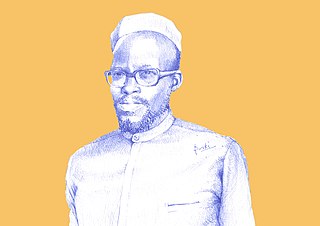
Pio Zirimu was a Ugandan linguist, scholar and literary theorist. He is credited with coining the word "orature" as an alternative to the self-contradictory term, "oral literature" used to refer to the non-written expressive African traditions. Zirimu was also central in reforming the literature syllabus at Makerere University to focus on African literature and culture instead of the English canon.
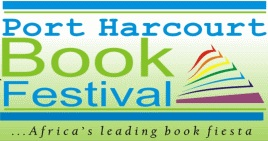
The Port Harcourt Book Festival is an annual literary event in Port Harcourt, Rivers State, Nigeria, organised by the Rainbow Book Club and endorsed by the Rivers State Government since 2008. The Garden City Literary Festival, which is currently known as the Port Harcourt Book Festival was founded by Governor Amaechi of Rivers State, Hundreds of literary fans flock to the Garden City every year for this six-day event, which includes a book fair, writers' workshops, and a variety of other activities. In the past the Festival has been attended by recognized authors and has hosted a number of celebrities.
Chinua Achebe Literary Festival is an annual literary event held in honour of Nigerian writer and literary critic — Chinua Achebe, the author of Things Fall Apart (1958), in commemoration and celebration of his works and immense contributions in the literary field.
Steve Biko (1946–1977) was a South African anti-Apartheid political activist.
References
- ↑ The Steve Biko Memorial Lectures 2000-2008, The Steve Biko Foundation and Macmillan
- ↑ "'The world looks to South Africa for moral leadership'". News UCT. Retrieved 29 April 2021.
- ↑ Chissano, Joaquim Alberto. "THE BLACK CONSCIOUSNESS MOVEMENT IN THE HISTORY OF THE LIBERATION STRUGGLES IN SOUTHERN AFRICA: Myth or Reality" (PDF). Steve Biko Foundation. Retrieved 29 April 2021.
- ↑ "17th Annual Steve Biko Memorial Lecture Remarks by Ms Obenewa Amponsah". Steve Biko Foundation. Retrieved 29 April 2021.
- ↑ "Pan-Africanism, Class and the State in Southern Africa – Dr Ibbo Mandaza" (PDF). Steve Biko Foundation. Retrieved 29 April 2021.
- ↑ Ramaphosa, Cyril. "The 19th Annual Steve Biko Memorial Lecture delivered by President Cyril Ramaphosa, University of South Africa, Pretoria". The Presidency, South Africa. Retrieved 29 April 2021.
- ↑ "20th Annual Steve Biko Memorial Lecture delivered by Reverend Al Sharpton to be Re-broadcast". unisa. Retrieved 29 April 2021.
- ↑ Professor Chinua Achebe, "Fighting Apartheid with Words" delivered on 12 September 2002, published in The Steve Biko Memorial Lectures 2000–2008, Macmillan, 2009, pp. 41–51.
- ↑ Ngugi wa Thiong'o "Recovering our Memory: South Africa in the Black Imagination", delivered 12 September 2003, published in The Steve Biko Memorial Lectures 2000–2008, Macmillan, 2009, pp. 51–73.
- ↑ Nelson Mandela "Ten Years of Democracy:1994-2004" delivered 10 September 2004, also published in The Steve Biko Memorial Lectures 2000–2008, Macmillan, 2009, pp. 73–79.
